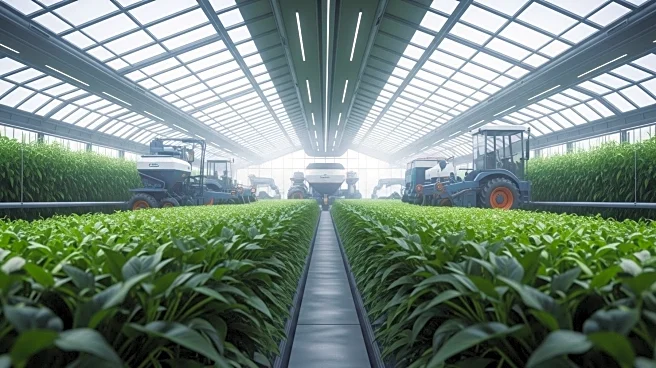What's Happening?
India's agricultural sector is facing pressure from new US tariffs, which have doubled to 50% on Indian imports, affecting key export categories such as marine products, Basmati rice, and spices. This trade disruption comes at a critical moment for Indian agriculture, which accounts for 18.2% of GDP and employs roughly 46% of the workforce. Industry analysts suggest that the pressure could accelerate technology adoption as farmers seek to reduce input costs and improve yields, making India an attractive destination for agtech investment.
Why It's Important?
The imposition of US tariffs on Indian agricultural exports highlights the vulnerability of global trade dynamics and the need for technological innovation in agriculture. As farmers face increased costs and seek alternative markets, the adoption of agtech solutions could provide a hedge against trade volatility. This shift towards technology-driven agriculture may enhance productivity and sustainability, positioning India as a key player in the global agtech market. The government's policy push towards climate-smart farming further supports this transition, creating opportunities for investment and growth in the sector.
What's Next?
India's agricultural sector may continue to explore alternative export markets, including Russia and China, while simultaneously investing in agtech solutions to enhance competitiveness. The focus on technology adoption could lead to increased investment from global agribusiness majors, who see India as a strategic market for growth. As the sector evolves, stakeholders will be watching for policy developments and investment trends that could shape the future of Indian agriculture.
Beyond the Headlines
The broader implications of India's agricultural transformation include potential shifts in global trade patterns and the role of technology in addressing climate challenges. As India adopts more advanced agronomic practices, the country may set new standards for sustainable agriculture, influencing global policies and practices. Additionally, the integration of technology in agriculture raises ethical considerations around data privacy and the impact on traditional farming communities.









